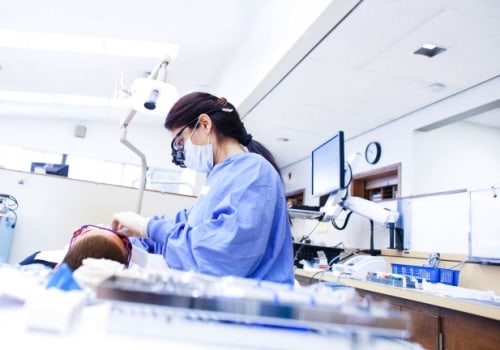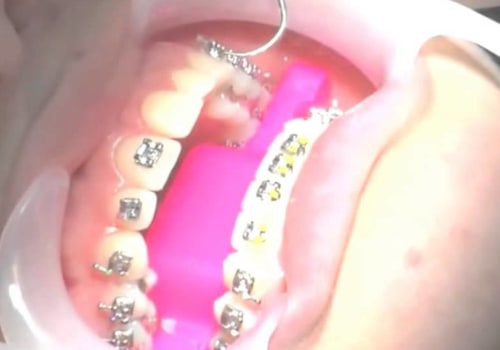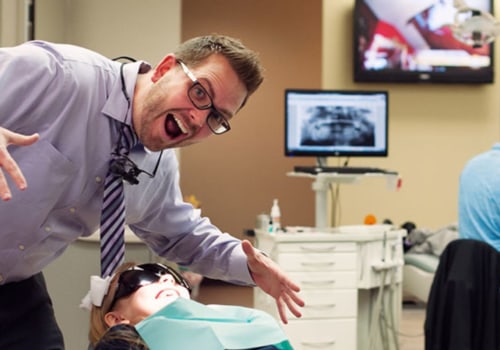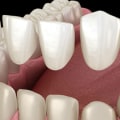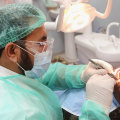If the affected tooth cannot be saved, the dentist will extract it and drain the abscess to eliminate the infection. If the infection is limited to the area of the abscess, antibiotics may not be necessary. The bottom line is that an infected tooth should be extracted as soon as possible. Visiting the dentist regularly can help you recognize signs of infections in the early stages and to extract the tooth before significant damage has occurred.
The risk of developing such an infection can be reduced if you properly care for your teeth. This includes maintaining adequate oral hygiene, avoiding substances that could damage your teeth, and having a dental checkup every six months. As long as bacteria is on its way to the nerve in the tooth, the abscess or infection will continue, even if you don't have pain, swelling, or think you don't have an infection. Antibiotics do not eliminate the infection in this case.
They cannot prevent bacteria from entering the pulp chamber. You should do a root canal or remove the tooth to eliminate the infection. If you have a root canal, the infected tissue is removed, the area cleaned, and then sealed so that no more bacteria can enter. By extracting the tooth, it is removed from the presence of oral bacteria.
In either case, the immune system can then clear up any remaining infections.
Dentists
will treat a tooth abscess by draining it and eliminating the infection. They may be able to save your tooth with endodontic treatment. However, in some cases, the tooth may need to be removed. Leaving a tooth abscess untreated can lead to serious and even fatal complications.All dentists are qualified to perform emergency tooth extractions if needed. Tooth extractions are a relatively common oral surgical procedure and may be necessary if the tooth is severely damaged or infected. If you need an emergency tooth extraction in Terre Haute, Dr. In some cases, to safely extract a tooth, the patient will need to take antibiotics beforehand. This will eliminate the infection to the point where extraction is safe.
However, if it hasn't progressed too far, the infection can often be treated manually. If an abscess has occurred under the tooth, the dentist can make an incision and drain it, then wash the space with saline solution to clean out any remaining infected material. To get rid of the infection after extraction of one or more teeth, it is necessary to see a dentist to prescribe antibiotics. The dentist must first perform a thorough examination to accurately understand what is happening in the patient's mouth at that time. Then they'll decide which antibiotic best suits their patient's particular infection-fighting needs. Remember to contact your dentist as soon as possible if you think you have a tooth infection or an abscess.
It's crucial that all dental patients follow their dentist's postoperative instructions very carefully to avoid infection. Your dentist can treat an infected tooth using treatments such as draining pus, extracting it, antibiotics, or endodontics. When a tooth is extracted, a hole is left where it used to be which needs to coagulate to prevent infection. Dentists can help in a variety of ways but remember that this infection won't go away on its own; it needs to be treated. Before extraction, dentists look for certain signs and symptoms to determine their course of treatment.
Any type of oral infection is dangerous and should therefore be examined by an experienced dentist as soon as possible. There are certain situations such as excessive swelling of the face or stretching of oral tissue in which a dentist would advise against extracting an infected tooth. If you're having a dental emergency in Terre Haute and wondering what to expect during an urgent visit to the dentist, know that if damage hasn't progressed much they may choose to try and save your tooth with an endodontic procedure. There are many different reasons why a dentist may recommend extraction but can they remove an infected one? Is it possible to treat it after infection has already occurred or does it need to happen sooner?If you have signs and symptoms of a tooth infection it's important to call your dentist as soon as possible.
